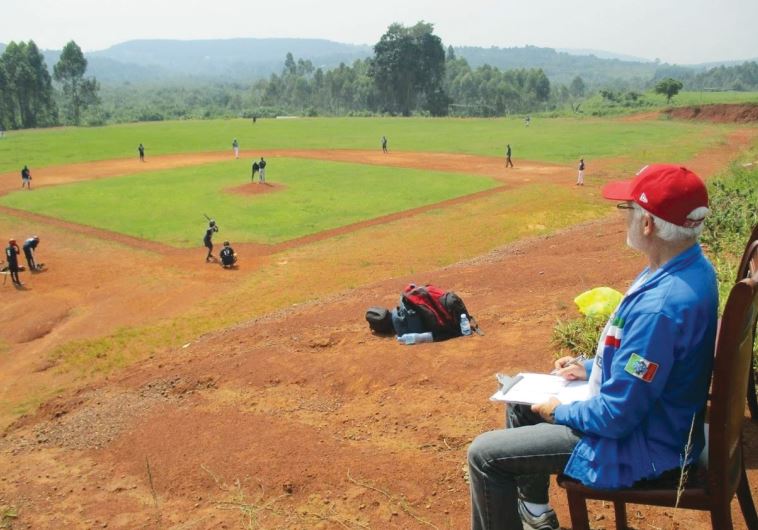The Major League Baseball scout in Jerusalem seeking talent around the world
David Friedman from Jerusalem scouts out young players for the Cincinnati Reds.
 Reds scout Friedman takes notes while watching the players(photo credit: ANAV SILVERMAN)Updated:
Reds scout Friedman takes notes while watching the players(photo credit: ANAV SILVERMAN)Updated: